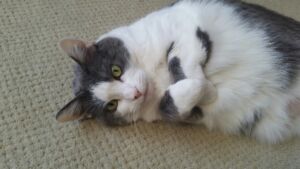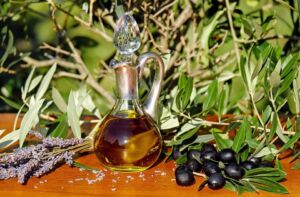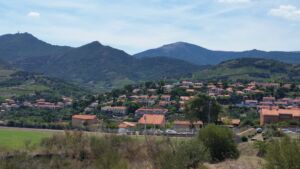Meet Dominique, Founder of the MicroRiche™ Based on the Mediterranean Diet
Dominique Hoffman, MicroRiche™ Diet Founder, holds a Master’s degree in Clinical Nutrition from the University of Bridgeport.
She studied with the best professors in the field of nutrition and biochemistry such as Richard Lord and Albert Grazia. She also holds a Bachelor’s degree in International Relations from George Mason University in Virginia and she studied the art of pastry at the Ecole de Boulangerie et Patisserie in Paris, France.
Her solutions often take the form of meals that are nutrient-dense, delicious, and personalized to satisfy each client’s needs and taste. The MicroRiche™ Diet Dominique has put in place aims at increasing the intake of micronutrients and decreasing macronutrients to compose a diet low in calories, yet rich in nutrients. No need for expensive packages or weight loss products. All the superfoods you need are in the produce isle of your grocery store.
Raised on a Mediterranean diet, Dominique always gravitated towards wholesome foods. She started cooking with her grandmother at the age of 8 and it is from her that Dominique learned techniques that would turn a boring vegetable into a spectacular meal.
Dominique helped restaurants create healthy and gluten free menus. She also served as an affiliate at the MEEX Maison Extraordinaire, an organization that offers feeding therapy counseling for picky eaters and special-needs children. She trained nutritionists, therapists, and fitness trainers in the science of nutrition.
Since starting Zizania in 2007, she has used her MicroRiche™ Diet programs to help many people successfully manage a multitude of health conditions such as type 2 diabetes, lupus, fibromyalgia, and to help cancer patients decrease the severity of chemotherapy symptoms and focus on a preventative nutrition therapy. 
Dominique Lives in Falls Church with her husband Joe and her beautiful cat, Fleau.
The Mediterranean Diet as Defined by UNESCO
The Mediterranean diet involves a set of skills, knowledge, rituals, symbols and traditions concerning crops, harvesting, fishing, animal husbandry, conservation, processing, cooking, and particularly the sharing and consumption of food. Eating together is the foundation of the cultural identity and continuity of communities throughout the Mediterranean basin. It is a moment of social exchange and communication, an affirmation and renewal of family, group or community identity. The Mediterranean diet emphasizes values of hospitality, neighbourliness, intercultural dialogue and creativity, and a way of life guided by respect for diversity. It plays a vital role in cultural spaces, festivals and celebrations, bringing together people of all ages, conditions and social classes. It includes the craftsmanship and production of traditional receptacles for the transport, preservation and consumption of food, including ceramic plates and glasses. Women play an important role in transmitting knowledge of the Mediterranean diet: they safeguard its techniques, respect seasonal rhythms and festive events, and transmit the values of the element to new generations. Markets also play a key role as spaces for cultivating and transmitting the Mediterranean diet during the daily practice of exchange, agreement and mutual respect.
Unesco Intangible Cultural Heritage



